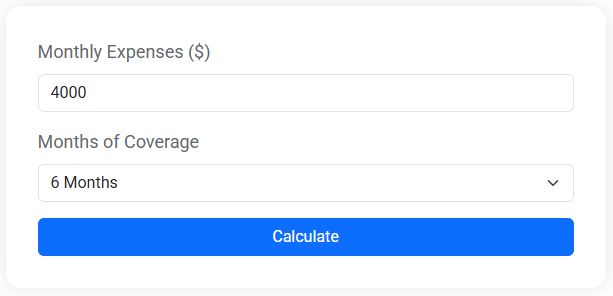Avoiding Budgeting Pitfalls: Common Mistakes to Watch Out For

Creating a budget is crucial for financial control, but common mistakes like neglecting an emergency fund, setting unrealistic goals, failing to track expenses, ignoring irregular costs, and being too rigid can derail your efforts. Building a proper emergency fund, setting SMART goals, regularly tracking spending, planning for irregular expenses, and maintaining budget flexibility can enhance financial stability. By avoiding these pitfalls, you can create a budget that supports your financial journey and provides peace of mind.
Creating a budget is like building a roadmap for your financial journey. It guides you toward your goals, helps you avoid unnecessary detours, and keeps your financial life on course. But as with any journey, there are potential pitfalls that can trip you up if you're not careful. Even the most well-intentioned budget can fall apart due to a few common mistakes. Let's dive deeper into these traps and explore how you can sidestep them to create a budget that truly works for you.
A budget is not just about tracking dollars and cents; it's about crafting a plan that supports your lifestyle and future aspirations. Unfortunately, many people start with enthusiasm but fall into some classic traps that derail their efforts. Whether it’s underestimating expenses or being too rigid, the good news is that these mistakes are avoidable with a bit of awareness and planning.
Neglecting an Emergency Fund
One of the most overlooked aspects of budgeting is the importance of an emergency fund. Many people dive into budgeting with the intention of saving and cutting costs but forget to account for life's unexpected events. Without a financial cushion, even a minor emergency can throw your budget into chaos.
Imagine your car breaks down, and suddenly you're facing a hefty repair bill. Without an emergency fund, you might have to dip into your savings or rack up credit card debt. According to a survey by Bankrate, nearly 25% of Americans have no emergency savings at all, which can lead to financial stress when the unexpected happens. By setting aside a small amount each month, you can build an emergency fund that provides peace of mind and keeps your budget intact.
Setting Unrealistic Goals
Ambition is great, but when it comes to budgeting, setting goals that are too lofty can backfire. It's easy to get caught up in the excitement of saving for a down payment or paying off debt quickly, but if your goals are unrealistic, you might end up discouraged and off track.
Consider the SMART criteria—specific, measurable, achievable, relevant, and time-bound—when setting your financial goals. Instead of saying, "I want to save $10,000 this year," break it down into smaller, manageable steps, like saving $833 a month. By setting realistic goals, you can celebrate small victories along the way, keeping your motivation high and your budget on course.
Emergency Fund Calculator
Wondering how much you should set aside for life's unexpected moments? Our Emergency Fund Calculator helps you quickly figure out how much you need to save to cover your expenses for 3, 6, or even 12 months. Whether you're building a financial safety net or planning for job loss, medical bills, or other emergencies, this tool gives you a clear savings goal to aim for — fast and easy.
Failing to Track Expenses
A budget is only as good as your ability to track where your money goes. It's not enough to plan how much you'll spend; you also need to monitor your actual spending. Many people make the mistake of setting up a budget and then never checking back to see if they're sticking to it.
Tracking expenses can be as simple as using a spreadsheet or a budgeting app like Mint or YNAB (You Need A Budget). As personal finance expert Clark Howard suggests, "Tracking your spending is essential because it tells the truth about your habits." By regularly reviewing your expenses, you can make informed adjustments and stay aligned with your financial goals.
Ignoring Irregular Costs
Monthly budgets often focus on regular expenses like rent, groceries, and utilities, but what about the costs that don't occur every month? Irregular expenses such as annual insurance premiums, holiday gifts, or car registration fees can wreak havoc on your budget if you haven't planned for them.
To avoid this pitfall, create a list of non-monthly expenses and estimate their annual cost. Then, divide the total by 12 and set aside that amount each month. This way, when those expenses arise, you'll have the funds ready, and they won’t disrupt your financial plans.
Being Too Rigid
While it's important to have a plan, being too rigid with your budget can lead to frustration and burnout. Life is unpredictable, and your budget should be flexible enough to accommodate changes. A budget that feels like a prison sentence is unlikely to be followed for long.
Allow yourself some wiggle room by including a "miscellaneous" category in your budget. This can cover unexpected small expenses that don't fit neatly into other categories. Remember, a budget is a tool to help you, not constrain you. By being adaptable, you can make adjustments as needed without feeling like you've failed.
Conclusion: Building a Resilient Budget
Avoiding these common budgeting pitfalls requires awareness and a bit of strategic planning. By taking proactive steps like building an emergency fund, setting realistic goals, tracking expenses, planning for irregular costs, and allowing for flexibility, you can create a budget that supports your financial journey rather than hinders it.
Remember, budgeting is a personal process, and what works for one person might not work for another. It's about finding the right balance that fits your lifestyle and financial situation. With a thoughtful approach, you can build a budget that not only guides you toward your goals but also provides peace of mind along the way.








